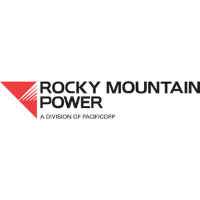
For business customers, the Wattsmart Business program provides services and incentives to customers who complete energy efficiency projects. Programs currently provided for residential customers include cash incentives for energy efficient appliances, improved insulation, energy efficient windows and low-income weatherization. It's part of our balanced approach to use a variety of cost-effective methods to provide electricity to our customers." Second, all customers benefit whether they participate in the programs or not because the cost of electricity saved through these programs is about half the cost of electricity generated by a new power plant.

"First, participating customers benefit from lower bills as they take advantage of these programs and use electricity more efficiently. "Customers benefit two ways from these programs," said Tim Solomon, regional business manager in Rexburg. The company request includes a proposed effective date of April 1, 2022.

These revenues do not affect company profits they allow the company to recover the investment it has already made on behalf of customers to provide energy efficiency programs. If approved by the Idaho Public Utilities Commission, the 0.50 percent increase would raise a typical residential customer's bill by about $5.52 per year. The company filed a proposal Januto increase the charge for all customer classes (except tariff contracts) from 2.25 percent to 2.75 percent of each customer's bill. These programs are funded by the Customer Efficiency Services charge, which appears as a line item on the customer bill. The utility promotes energy efficiency and programs that coordinate when electricity is used, as well as reduce overall electrical use to help customers save money. In earlier testimony, Rocky Mountain Power claimed the current net metering system unfairly shifts costs to non-net metering customers in Idaho.In planning to meet the electricity needs of customers, Rocky Mountain Power works with customers to help them use electricity more efficiently. The study process will be conducted in two steps: a study design phase and study review phase, with opportunities for public input during both phases. The changes to the net metering program, including the proposed export credit rate, will be analyzed by the company in a comprehensive study that examines the costs and benefits of net metering. Rocky Mountain Power estimates that the current retail rate paid to Schedule 135 customers is about 12.5 cents per kilowatt-hour and the proposed export credit rate for Schedule 136 is 2.4 cents per kilowatt-hour.Īccording to the Idaho Public Utilities Commission, Rocky Mountain Power also wants to charge customers a one-time, non-refundable application fee of $85. Existing net metering customers would be “grandfathered” until July 31 2030.Ī new schedule would compensate customers for exported energy at an export credit rate, rather than the retail rate. Now, the utility wants to close its current program as of July 31, 2020. Rocky Mountain Power’s original application was filed June 19, 2019.

Theoretically, that renewable electricity helps lower the utility’s expense for power through avoided cost. Net billing refers to a system of billing a customer who installs a renewable energy generator for retail electricity purchased at retail rates and crediting the customer’s bill for the electricity produced. BOISE, Idaho (KIFI/KIDK)-The Idaho Public Utilities Commission is holding a workshop tonight on Rocky Mountain Power’s proposal to change how its net-metering customers are compensated.Ī telephonic public hearing for customers is scheduled Monday at 3 p.m.


 0 kommentar(er)
0 kommentar(er)
